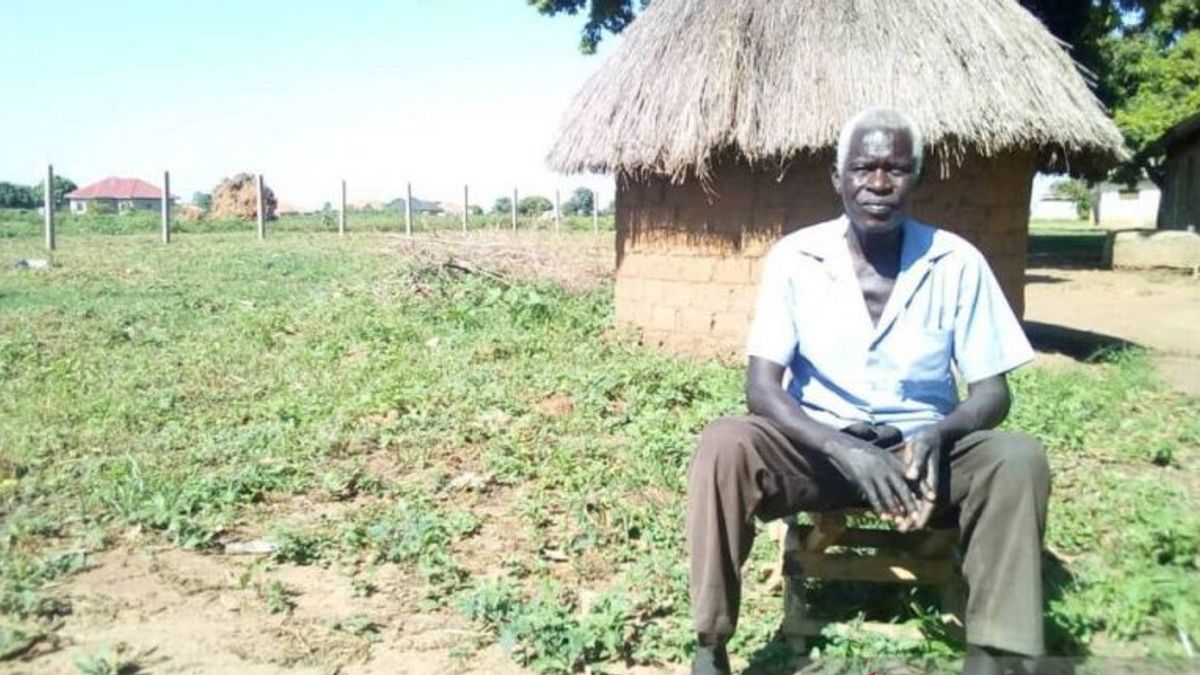JAKARTA - When Otajar John heard the news that the elderly would be given an allowance of 25 thousand shillings (Rp 102,000) per month from the Ugandan government, he rushed to register.
After a lifetime as a farmer, the 80-year-old man made a living by begging. The benefits offered by the government would be very helpful, he thought.
However, almost two years later John still can't get the benefits because he doesn't have a "quality standard." The digital ID card is a requirement for accessing most public and private services in Uganda.
"I applied for the ID, but my birth date was made 10 years younger and I couldn't use it," John, 83, told the Thomson Reuters Foundation by phone from his home in Bazaar village in Kumi district.
"I've asked many times to have my ID card corrected, but the officials won't do it and refuse me. Without that card, I have no choice but to beg to death," he said in Ateso through an interpreter.
John is one of millions of Ugandans who are suing the government through a charitable alliance. The alliance said the vulnerable group had been denied humanitarian assistance because it was not included in the rollout of national ID cards.
Three charities in the alliance – the Initiative for Social and Economic Rights, Unwanted Witness, and the Health Equity and Policy Initiative – estimate that nearly a third of adults do not have the biometric ID card, seven years after the system was launched.
Most of those affected are poor and marginalized, such as the elderly who cannot afford welfare assistance and pregnant women who are rejected by health centres, they said, citing research conducted last year.
The absence of a national ID card has also prevented many citizens from opening bank accounts, buying cell phone cards, entering universities, working in the formal sector and obtaining passports, they said.
The three charities filed suit on April 25. They stated that the mandatory use of the national ID card was exclusive and violated the residents' right to obtain essential services.
They want courts to force the government to accept alternative forms of identification in social and health services.
Officials at the National Identification and Registration Authority (NIRA), which deals with digital ID cards, did not return a request for comment.
They previously acknowledged that the system needed upgrading and said they would take steps to increase card issuance.
Brian Kiira, program officer at the Initiative for Social and Economic Rights, said there have been "countless obstacles" in the digital ID card system since its launch in 2015.
"From design to implementation, the whole system is very problematic," he said.
"People are suffering because they don't have ID cards. We are trying to help the authorities, but nothing has changed. So we have no other option but to take this to court."
Full of Troubles
About 1 billion people, 40 percent of whom live in Africa, have no proof of legal identity, limiting their ability to access health, education and financial services, according to World Bank estimates.
More and more countries are adopting a national ID card system because it provides convenience and efficiency, increases security, and prevents fraud. The system also costs less than analog systems.
Digital ID cards, which associate biometric data such as fingerprints and iris scans with a unique identification number, have been introduced in countries such as India, Canada, Mexico, Indonesia, Malaysia, Germany, Ghana, Nigeria, South Africa and Chile.
India's system, the largest in the world, has also been criticized for excluding some 100 million vulnerable people, most of them homeless or transgender people who are unable to access essential services.
Citing the latest data from NIRA, research by three Ugandan charities last year said only about 12.7 million cards had been issued to 18.9 million adults in 2019.
Residents, especially in rural areas, do not know how to register and face difficulties traveling and paying for long trips to the registry office, they said.
The research, which included more than 450 interviews, also found long card issuance wait times and a high rate of name and date of birth errors, as John experienced.
As a result, some 50,000 people over the age of 80 have either an error in their ID card or no ID card at all, preventing them from getting benefits for the elderly, they said.
A fee of 50,000 shillings (Rp 204,000) must be paid to repair ID cards, which many in the east African country cannot afford, activists say.
More than 40 percent of Ugandans live on less than $1.9 per day, according to the World Bank.
Need to think again
"Lack of access to ID cards, waiting time and bureaucracy to issue them, and mandatory use (of the card) have made Uganda's ID card system exclusive," said Dorothy Mukasa, managing director of Unwanted Witness.
"Until they can deal with all these problems and allocate sufficient resources for the national ID card system, the government should allow the use of other forms of identification, such as a certificate from the village as it used to be."
The case is expected to be heard in Uganda's High Court, but a date has not yet been set.
Last year, the three charities filed similar lawsuits after the government announced plans to require ID cards for COVID-19 vaccinations. The court has not yet decided, so the health ministry has not been able to implement it.
There has been a proliferation of national ID card schemes in African countries in recent years, but digital rights advocates say they are being implemented too quickly, often without sufficient planning or resources.
"Most of these ID cards are imported and their design and implementation really doesn't take the specifics and country context into account," said Bridget Andere, Africa analyst at Access Now.
Biometric scanners in Uganda, for example, often can't read the fingerprints of elderly people because their palm lines are fading from decades of hard work like in agriculture, Andere said.
"Instead of being more inclusive, this digital ID card actually exacerbates social inequality," he added.
The English, Chinese, Japanese, Arabic, and French versions are automatically generated by the AI. So there may still be inaccuracies in translating, please always see Indonesian as our main language. (system supported by DigitalSiber.id)













